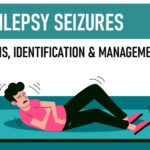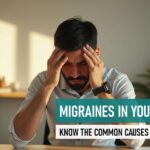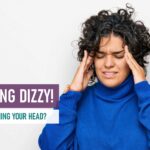This blog is based on research by Journal of the American Medical Association [Link Here]. Dementia is defined by loss of memory, problems with thinki...
7 Stages of Alzheimer’s Disease
Knowing the stages of Alzheimer’s Disease, you can communicate more easily with your loved ones, their physicians and ensure they’re getting the t...
Temporal Lobe Epilepsy – What to Know About It?
Temporal Lobe Epilepsy (TLE) is one of the most common type of focal epilepsy. According to the Epilepsy Foundation, TLE occurs in around 6 out of 10 ...
Common Parkinson’s Disease Misconceptions that Everyone Has
When you ask the expert what common misconceptions about Parkinson’s disease still exist, they will say, “which one to start from?”. Because the...
Epilepsy Myths – Finding Fact About an Often-Misunderstood Condition
Some myths around epilepsy are centuries old but they still exist. When someone hears the word “epilepsy”, all we picture out a dramatic scene –...
Dementia and Sleep Disorder
Many individuals with dementia struggle with sleep concerns. Learn about how dementia affects sleep and steps to improve sleep disorder in people with...
November is Epilepsy Awareness Month – Being Aware Helps You Care
November is recognized as Epilepsy Awareness Month. It is part of an effort to ensure the public knows that anyone can live with epilepsy and circulat...
Unconventional Stroke Risk Factors
Beside knowing what is stroke and warning signs, it is important to know some of the unconventional stroke risk factors out there....
Vestibular & Balance Disorders – Symptoms, Causes & Treatments
Recognize the most common signs and symptoms & treatment for balance disorders or vestibular disorders, and the impact they may have on daily routines...
Living With Essential Tremor
Essential Tremor (ET) is a nervous system (neurological) disorder that causes involuntary shaking movement in which no cause can be identified. Involu...






